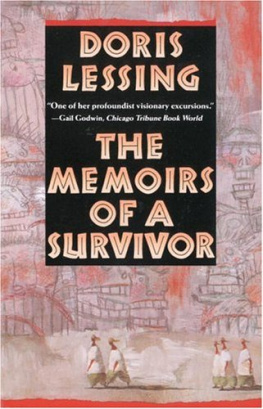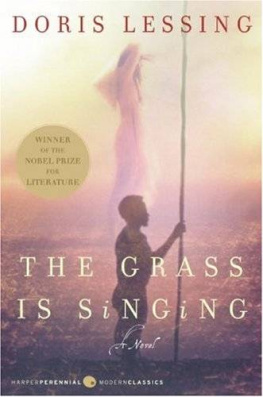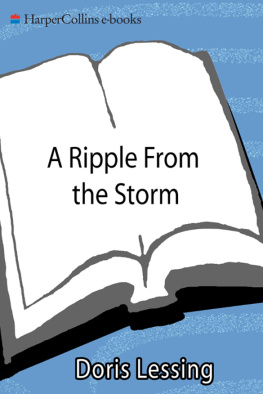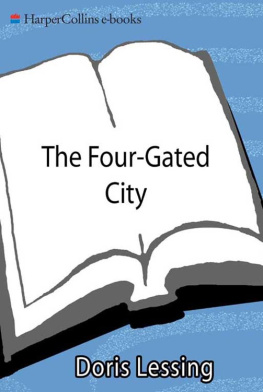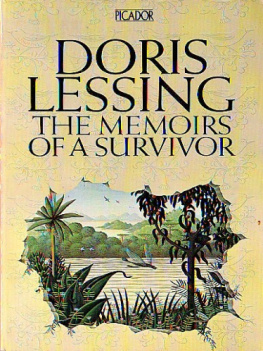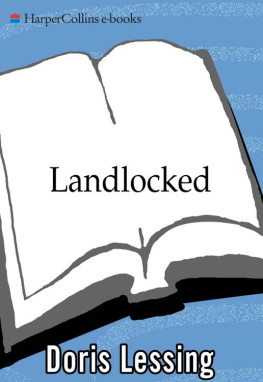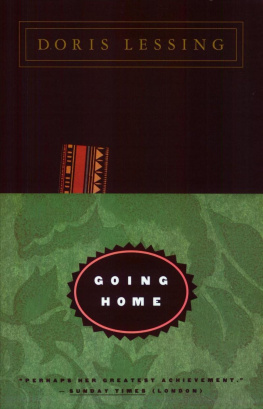One of the things we now know was true for everybody, but which each of us privately thought was evidence of a stubbornly preserved originality of mind, was that we apprehended what was going on in ways that were not official. Not respectable. Newscasts and newspapers and pronouncements were what we were used to, what we by no means despised: without them we would have become despondent, anxious, for of course one must have the stamp of the official, particularly in a time when nothing is going according to expectation. But the truth was that every one of us became aware at some point that it was not from official sources we were getting the facts which were building up into a very different picture from the publicized one. Sequences of words were crystallizing events into a picture, almost a story: And then this happened, and so-and-so said . .. but more and more often these were words dropped during a casual conversation, and perhaps even by oneself. Yes, of course! one would think. Thats it. Ive known that for some time. Its just that I havent actually heard it put like that, I hadnt grasped it
Attitudes towards authority, towards Them and They, were increasingly contradictory, and we all believed that we were living in a peculiarly anarchistic community. Of course not. Everywhere was the same. But perhaps it would be better to develop this later, stopping only to remark that the use of the word it is always a sign of crisis, of public anxiety. There is a gulf between: Why the hell do they have to be so incompetent! and God, things are awful! just as Things are awful is a different matter again from It is starting here too, or Have you heard any more about it?
I shall begin this account at a time before we were talking about it. We were still in the stage of generalized unease. Things werent too good, they were even pretty bad. A great many things were bad, breaking down, giving up, or giving cause for alarm, as the newscasts might put it. But it, in the sense of something felt as an immediate threat which could not be averted, no.
I was living in a block of flats, which was one of several such blocks. I was on the ground floor, at earth-level; not as it were in some aerial village with invisible paths beaten from window to window by the inquisitive or the speculative eye among birds following their roads, while traffic and human affairs were far below. No, I was one of those who looked up, imagining how things might be up there in higher regions where windows admitted a finer air, and where front doors led to the public lifts and so down, down, to the sound of traffic, the smells of chemicals and of plant life the street. These were not flats built by a town council, the walls scribbled with graffiti, the lifts stained with urine, the walls of lobbies smeared with excrement: these were not the vertical streets of the poor, but were built by private money, and were heavy, were settled widely over the valuable soil - the formerly valuable soil. The walls were thick, for families who could afford to pay for privacy. At the entrance was a largish hall, carpeted; and there were even stands of flowers, artificial but handsome enough. There was a caretaker. These blocks were models of what such buildings should be for solidity and decency.
But by that time, with so many people gone from the city, the families who lived in these blocks were not all the class for whom the buildings had been put up. Just as, for years, all through the eroding streets of the poor, empty houses had been taken over by squatters settling in families or groups of families, so that for a long time it had been impossible to say: This is a working class area, this is homogeneous - so, too, in these great buildings once tenanted only by the well-to-do, by the professional and business people, were now families or clans of poor people. What it amounted to was that a flat, a house, belonged to the people who had the enterprise to move into it. So, in the corridors and halls of the building I lived in you could meet, as in a street or a market, every sort of person.
A professor and his wife and his daughter lived in the twin set of rooms to mine down the corridor; immediately above me was a family of Indians with many relatives and dependants. I mention these two sets of people because they were closest to me, and because I want to make the point that it is not as if an awareness of what went on behind walls and ceilings had been lacking before the start of -what? Here I do find difficulty, because there is nothing I can pinpoint, make definite now I am talking not about the public pressures and events we encapsulate in words like They, Them, It and so on, but my own private discoveries which became so urgent and which were making such a claim on me at the time. I cant say: On such and such a day I knew that behind the wall a certain quality of life was being lived. Not even: It was in the spring of that year that No, the consciousness of that other life, developing there so close to me, hidden from me, was a slow thing, coming precisely into the category of understanding we describe in the word realize, with its connotation of a gradual opening into comprehension. Such an opening, a growing, may be an affair of weeks, months, years. And of course one can know something and not know it. (One can also know something and then forget it!) Looking back I can say definitely that the growth of that other life or form of being behind that wall had been at the back of my mind for a long time before I realized what it was I had been listening to, listening for. But I cant set down a date or a rime. Certainly this inner preoccupation predated the other, public, concern to which Ive given, I hope it is not thought frivolously, the word it.

